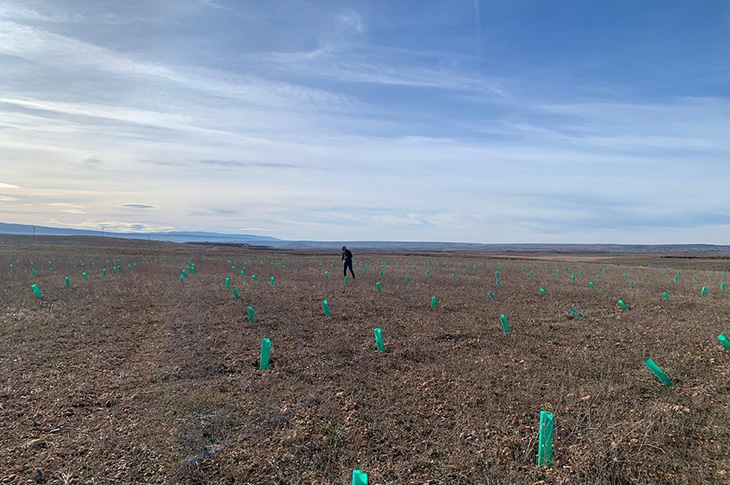Spanish hotels committed to a sustainable future: from energy efficiency to recycling
Reforestation, ultra-local produce, and social responsibility: the sustainable revolution of Spanish hotels
The Spanish hotel sector is redefining its model with various strategies that combine sustainability, energy efficiency, and social commitment. From reforestation to circular-economy projects that reduce waste and emissions, hotel chains are integrating innovations that benefit both the environment and local communities. With initiatives ranging from the use of renewable energies to inclusion and training programs, these establishments are moving towards more responsible and competitive tourism. Casual Hoteles has launched an innovative program in which customers can forgo the daily cleaning service and have the cost allocated to creating the hotel’s very own forest in Perales de Alfambra (Teruel), an area deforested centuries ago to build the ships of the Spanish Armada. With over 1,000 trees planted in six months, this initiative has generated rural employment and is already beginning to absorb tons of CO2, transforming a small gesture into a tangible environmental impact.

Paradores de Turismo is also reinforcing its commitment to environmental conservation through awareness campaigns and the “1 m² against littering” campaign. In partnership with various environmental organizations, their establishments hold litter-picking days in natural settings, involving both employees and guests in environmental protection. Grupo Piñero is making progress in eliminating single-use plastics, avoiding approximately 200 tons of waste annually. Its strategy focuses on reduction at the source, promotion of reusable materials, and environmental awareness campaigns in the various destinations in which it operates, combining volunteering and education for responsible tourism. Vincci Hoteles demonstrates its commitment to the circular economy through its “Circular Rice” project, in which coffee grounds from Nespresso capsules are turned into fertilizer to grow rice, which is ultimately returned to their hotels’ kitchens. Implemented in restaurants in cities such as Madrid, Barcelona, and Seville, this initiative gives a second life to waste and offers guests dishes with a sustainable identity.
Six Senses Ibiza directly involves its guests in workshops at the Earth Lab, as well as harvesting and planting activities at Six Senses Farm to connect with nature, local traditions, and the community. The experience promotes reduced consumption and support for local communities, conveying sustainable practices also applicable to visitors’ daily lives. Hotels within the Hotel and Non-Hotel Accommodation Association of Tenerife, La Palma, La Gomera, and El Hierro have developed the Circular Tourist Communities project, which transforms hotel bio-waste into compost to nourish farms that then go on to produce fruits and vegetables purchased by the hotels, closing the production cycle. What’s more, they also promote Energy Saving Certificates, which certify and monetize consumption savings, facilitating investment in energy efficiency for Canary-Island hotels.

